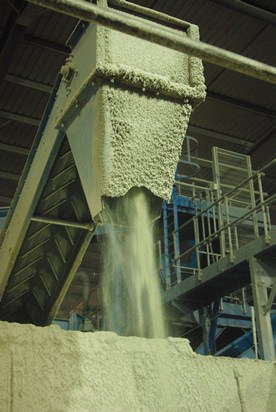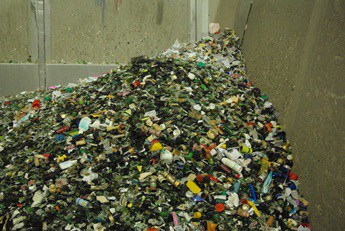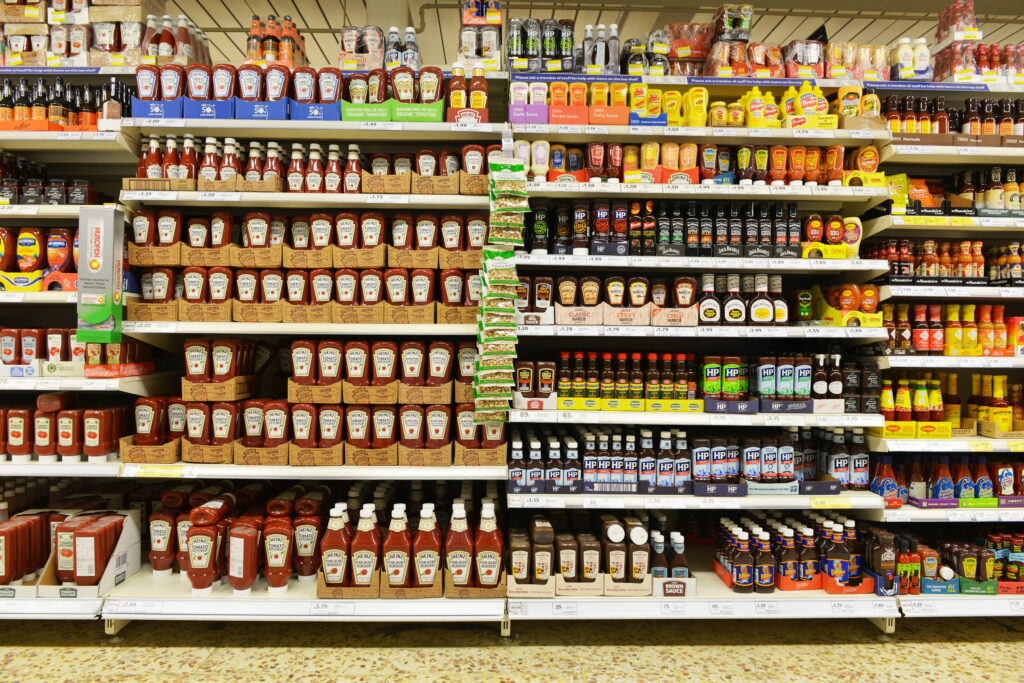Concerns have frequently been raised by some in the recycling sector about the quality of container glass which is recovered at materials recycling facilities (MRFs).
Last year, British Glass chief executive David Dalton last year said that the glass industry had become a victim of the increasing use of MRFs in the UK, as the quality of material coming from MRFs was lower (see letsrecycle.com story).
But does this have to be the case? National organics and recycling manager at Viridor, Bill Griffiths, doesnt think so. He is keen to stress that top-quality remelt and aggregate glass can in fact be recovered from MRFs if the right structure is in place and clear messages are put out to the public.
Ford MRF
Mr Griffiths is based at Viridors state-of-the-art MRF in Ford, which processes household material collected through a 29-year PFI contract signed with West Sussex county council in 2004 (see letsrecycle.com story).
Opened in 2009 on the Ford airfield industrial estate, the 15 million MRF has the capacity to sort 100,000 tonnes of material per year and Mr Griffiths says it holds up as a prime example of how to produce high quality material from a MRF.
When the West Sussex contract started, recycling rates in the county stood at around 22%, but this figure has now risen to 45% in 2012/13. The tonnage of recyclable material also increased from around 24,500 a year to a peak of 84,000 after the MRF opened.
Mr Griffiths says the key to both boosting overall recycling rates and producing high quality glass in West Sussex has been having a standardised, simple, clear collection system and communicating this across the county, which has boosted the input quality of material from residents.
And, he says, higher quality is achievable at MRFs across the UK if recycling and collections are less fractured and reprocessors recognise higher quality output with higher prices in order to boost investment in better facilities.
He says: It is important to get the message out to the public that actually all this stuff is recyclable. The public are absolutely fundamental to the recycling process and as individuals we have to be responsible.
Process
At Ford, waste and recycling is collected by each of West Sussex districts different contractor or in-house service and brought for initial quality checks at Viridors five waste transfer stations in the county, although waste collected in nearby Arundel is delivered straight to the MRF.
Each council uses the same system regardless of which company is contracted to collect material in each district with material collected fully comingled alongside an optional green waste wheelie bin.
The next level of quality checks takes place after material is delivered to the MRF, with Viridor staff surveying the contents dropped off by each lorry for contaminated items, or items that dont fit the strict categories stipulated for recycling: cartons; foil; glass bottles and jars; metal cans and aerosols; paper and card; and plastic bottles.
Crucially, when the material is dropped off by collection vehicles, it is clean and dry with little contamination to start with, enabling the MRF machinery to do its job effectively. This involves a complex system of optical sorters, trommels and conveyors sorting and separating all the different materials and directing it to the right area for separate bailing.
We track the quality of our input material and we track the quality of our output to make sure that the two reconcile – that we are not losing non-recyclable material in our products, Mr Griffiths says. But if people put all the wrong recycling into their boxes to start with then it doesnt work and this is not the machines fault.
Communication
The key, he says, is to make the message simple, and the Ford MRFs onsite education centre has also helped to get the out message of the importance of clean material being put out for recycling around West Sussex.
Just getting the public to understand that what they do has a clear impact on how we recycle, is the most important thing, he says. We ask for it clean, dry and loose. This means that if they get it wrong you can still manage it and control it. You dont very often hear that message, but I like to think thats a Viridor message.
And, as part of a better consistency of message and collection systems, Mr Griffiths also favours more local authority waste partnerships such as that in West Sussex in England to save time, money and boost quality.
Mr Griffiths states: Partnership working works on every level and you get a consistent message and a branded look to the public.
Viridor does not offer collection services anywhere in the UK, but Mr Griffiths says quality does not have to be compromised by commingled collections or different companies working at different parts of the chain.
We have never had a complaint about commingled collections, because its really simple, he says. Commingled captures more material because it is easier at home, although we still work with all forms of collections because there is no one size that fits all.
He adds: Is commingled right or wrong? The fact is it captures more material. We got an extra 10% capture rate on glass when we started because it’s easier in the home.
Confidence
To improve MRF quality glass in the UK, though, it isnt just about engaging with the public confidence in the material also has to be boosted further up the chain after remelt and aggregate glass leaves the MRFs.
Once weve given them the higher quality output, reprocessors have to recognise that with a higher value for the material we produce. Then with that, you can invest in improvements, he says. That way, youve got the driver for better quality coming both ways for you both from the public and from reprocessors.

To boost confidence though, leadership is also needed, he says: Underpinning all of that, the government needs to be very clear with where we are going with this. The uncertainty has to be be taken away by government so that we have quality coming in the back end and quality coming out the front end.
However, Viridor is a very well-established, international waste management company is investment in producing high quality MRF glass for remelt possible for smaller companies? Mr Griffiths believes so.
From operating a local authority contract, Viridor has recognised that there is a split out between aggregate and remelt and recycling and recovery. Again, that’s why we’ve invested over the last two years here, says Mr Griffiths. We were 100% aggregate when we opened the plant four years ago and we’ve moved now so we are more than 50% remelt. So in terms of can it be achieved cost effectively, absolutely. Our aggregate is end-of-product PRN, so from a technical point of view it is achievable.
And if you have certainty in the market with strong regulations you can attract investment.









Subscribe for free